mass surveillance
Filter by...
-

CJEU saved the HADOPI: what implications for the future of data retention in the EU?
The Court of Justice of the European Union judgement on the HADOPI case (C-470/21) is significant for the ongoing debate on mandatory retention of metadata, such as traffic and location data. EDRi provides key takeaways and what they mean for the upcoming data retention legislation by the European Commission.
Read more
-
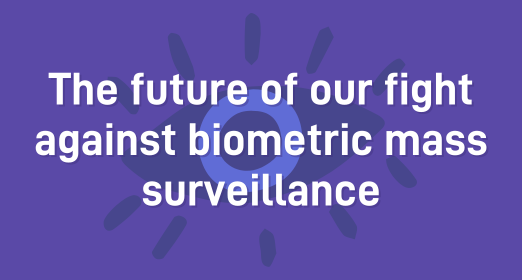
The future of our fight against biometric mass surveillance
The final AI Act is disappointingly full of holes when it comes to bans on different forms of biometric mass surveillance (BMS). Despite this, there are some silver linings in the form of opportunities to oppose BMS in public spaces and to push for better protection of people’s sensitive biometric data.
Read more
-

Europol and biometric surveillance “won” the Czech Big Brother Awards
For the 19th year, the Big Brother Awards took place in the Czech Republic. There were four negative awards given as well as one positive award.
Read more
-
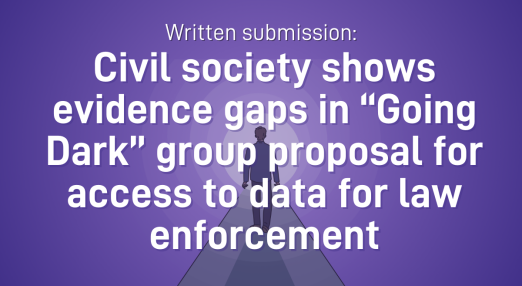
Written submission: Civil society shows evidence gaps in “Going Dark” group proposal for access to data for law enforcement
On 28 February 2024, EDRi and its members submitted written comments on the work of the High-Level Group (HLG) on “access to data for effective law enforcement". This HLG was set up under the Swedish Presidency of the Council in 2023 to allegedly find solutions to law enforcement ‘modern challenges’ in the digital era.
Read more
-
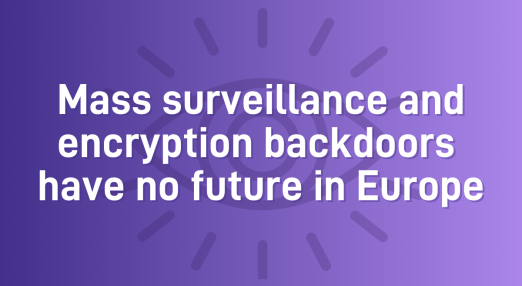
Mass surveillance and encryption backdoors have no future in Europe
Today, 20 February, in a public consultation at the European Commission, the EDRi network calls on EU lawmakers to end all attempts to normalise dangerous surveillance practices that rip people off their safety and privacy online.
Read more
-

NGOs and experts warn AI Act negotiators: don’t trade our rights!
On 8 December 2023, 70 civil society groups and 34 expert individuals sent an urgent letter to the Council of EU Member States, the European Commission and the European Parliament to urge them "Do not trade away our rights!" in the final trilogue (negotiation) on the landmark Artificial Intelligence (AI) Act.
Read more
-

CSA Regulation Document Pool
This document pool contains updates and resources on the EU's proposed 'Regulation laying down rules to prevent and combat child sexual abuse' (CSA Regulation)
Read more
-

Is this the most criticised draft EU law of all time?
An unprecedentedly broad range of stakeholders have raised concerns that despite its important aims, the measures proposed in the draft EU Child Sexual Abuse Regulation are fundamentally incompatible with human rights.
Read more
-
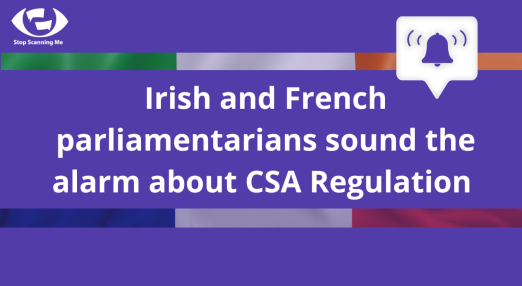
Irish and French parliamentarians sound the alarm about EU’s CSA Regulation
The Irish parliament’s justice committee and the French Senate have become the latest voices to sound the alarm about the risk of general monitoring of people’s messages in the proposed Child Sexual Abuse (CSA) Regulation.
Read more
-

United Nations report voices digital rights groups’ concerns over encryption in EU’s new rules
On 16 November 2022, the United Nations Human Rights Office published a report on the right to privacy in the digital age warning against the European Union’s plans to undermine encryption and the threat of mass surveillance in the proposed chat control legislation.
Read more
-
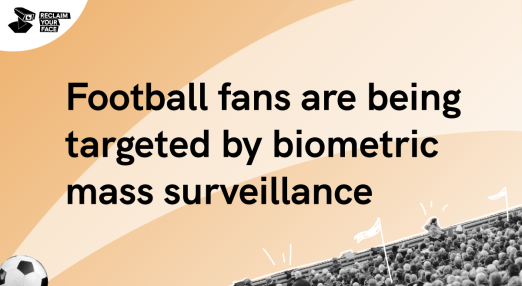
Football fans are being targeted by biometric mass surveillance
Apart from its undemocratic nature, there are many reasons why biometric mass surveillance is problematic for human rights and footabll fans’ rights.
Read more
-
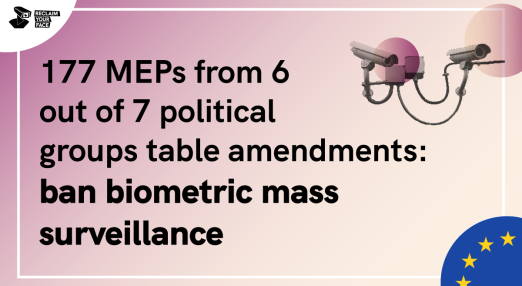
European Parliament calls loud and clear for a ban on biometric mass surveillance in AI Act
After our timely advocacy actions with over 70 organisations, the amendments to the IMCO - LIBE Committee Report for the Artificial Intelligence Act clearly state the need for a ban on Remote Biometric Identification. In fact, 24 individual MEPs representing 158 MEPs, demand a complete ban on biometric mass surveillance practices. Now we need to keep up the pressure at European and national levels to ensure that when the AI Act is officially passed, likely in 2023 or 2024, it bans biometric mass surveillance.
Read more
